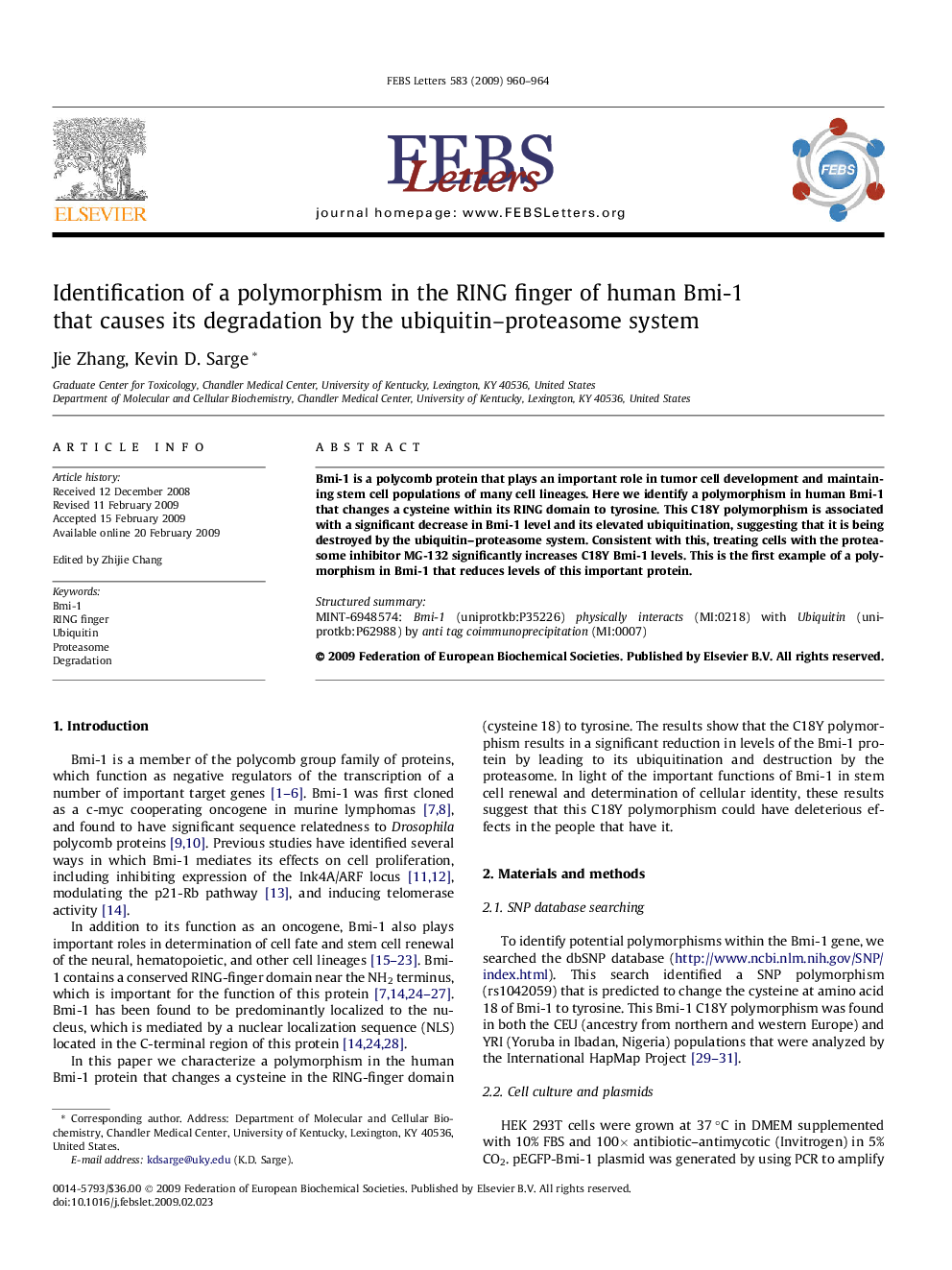| Article ID | Journal | Published Year | Pages | File Type |
|---|---|---|---|---|
| 2048652 | FEBS Letters | 2009 | 5 Pages |
Bmi-1 is a polycomb protein that plays an important role in tumor cell development and maintaining stem cell populations of many cell lineages. Here we identify a polymorphism in human Bmi-1 that changes a cysteine within its RING domain to tyrosine. This C18Y polymorphism is associated with a significant decrease in Bmi-1 level and its elevated ubiquitination, suggesting that it is being destroyed by the ubiquitin–proteasome system. Consistent with this, treating cells with the proteasome inhibitor MG-132 significantly increases C18Y Bmi-1 levels. This is the first example of a polymorphism in Bmi-1 that reduces levels of this important protein.Structured summaryMINT-6948574: Bmi-1 (uniprotkb:P35226) physically interacts (MI:0218) with Ubiquitin (uniprotkb:P62988) by anti tag coimmunoprecipitation (MI:0007)
